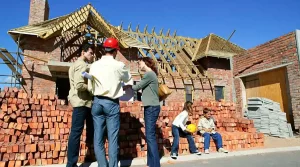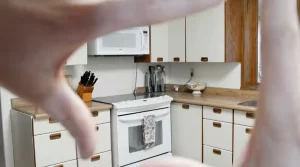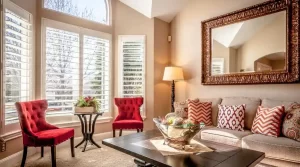As your family grows, you may find yourself facing some housing questions. While buying an existing home is an option, you might also consider a home renovation to increase space and functionality. On the other hand, building a new home from scratch offers the opportunity to create your dream home and potentially save on long-term costs. To make the best decision for your situation, let’s explore some crucial factors to consider.
1. Cost of Building a New House: How much would it be?
Building a new house comes with an average price tag of around $300,000 for 2,000 square feet of living space, approximately $150 per square foot. Keep in mind that if you don’t already own the land, acquiring it will add significant costs, varying based on location and market situations. Moreover, the process from design to moving in can take anywhere from six months to over a year.
2. Renovation Vs. Buying Used Vs. Building New: Comparing Costs
In general, renovating an existing house tends to be less expensive than purchasing a used home or building a new one. To break down the numbers, consider the average costs per square foot. Home renovation typically costs around $100 per square foot, and moving costs are minimal. Buying a used house averages around $120 per square foot, while building a new one comes in at approximately $150 per square foot.
3. Most Expensive Part of Renovating a House
Materials and labor are the primary cost drivers when renovating a house. Together, they account for nearly half of the total remodeling budget. Labor costs are usually higher for renovations compared to new home construction, where they can be as low as 30% of the total cost.
Among the different spaces, the kitchen is the most expensive room to remodel. Kitchen renmodeling encompass multiple elements, such as plumbing, HVAC, electrical work, cabinetry, appliances, and meticulous planning. Bathroom renovations follow as the second most expensive, although they are still behind kitchens.
4. Home Renovations that Increase Home Value
One significant advantage of remodeling is its potential to increase the selling value of your home. Even moderately priced renovation projects can have a positive impact on home values. Here are some large-scale projects that tend to yield a healthy return on investment:
- Kitchen remodels (large or small)
- Small bathroom renovations
- Deck or patio additions
- Basement finishing
- Attic remodels
5. Benefits of Building a New House
The most significant advantage of building a new house is you will have the chance and ability to create the perfect home for you and your family, especially if your budget allows for customization. Additionally, building in the perfect location is an attractive option. While the upfront costs of building new are higher compared to renovations or buying a used home, the long-term expenses can be lower. New homes often offer lower maintenance costs, improved energy efficiency, and fewer future renovation needs, making them comparable in overall price in the long run.
6. Renovate or Build New: Considerations
There’s no one-size-fits-all answer to whether you should renovate or build a new house. To get closer to a decision, ask yourself the following questions:
- Do I have equity in my current home to consider?
- What’s the state of the current real-estate market?
- What are the financing costs of both options?
- Is moving a feasible option for my family?
- – Do I have time to wait for a new house to be built?
- – Is short-term or long-term money savings more critical for my family?
- – Is my family going to grow larger?
Carefully weighing these factors will help you make an informed decision that suits your family’s needs and aligns with your financial goals. It’s also essential to consider both short-term and long-term implications to create a space that brings joy and comfort to your family for years to come.
Ultimately, whether you choose to build a new house or renovate your existing home, both paths can lead to a space that reflects your family’s unique style and needs. Each option has its merits, and with proper planning and execution, you can create a home that brings joy and comfort to your family.










